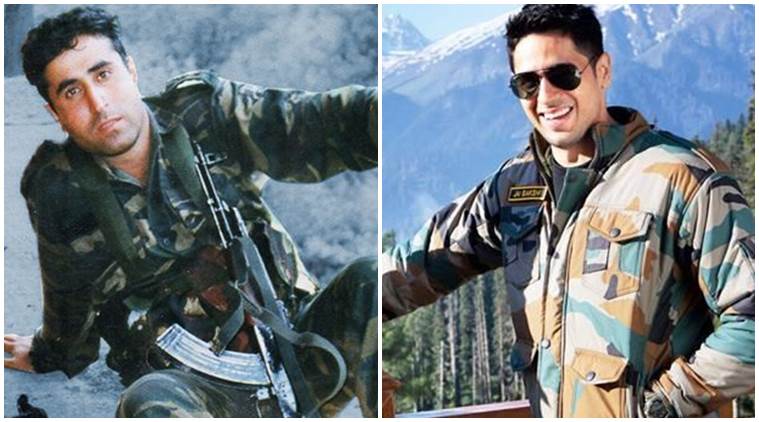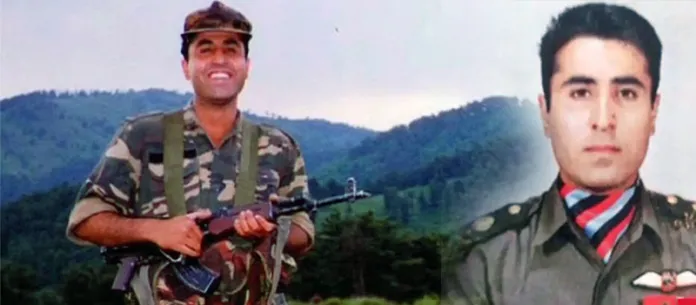The story follows Vikram Batra who gave up his life in order to save his nation. He was an officer as well as a middle-class child and a brilliant academic. And when enemies attacked him, he took on them with reckless abandon.
The man was an upper-middle-class boy
If you’re a lover of Indian films, you might have heard about Vikram Batra who was an Indian soldier who sacrificed his life during the Kargil war. The actor was the main subject in a brand new biopic with Sidharth’s Malhotra as the main character.
The 9th of September, 1974 was the day that Vikram Batra was born, in the Kangra Valley of Himachal Pradesh, Vikram Batra had a military career as a lieutenant in the 13th Battalion of the Jammu and Kashmir Rifles. In actuality, he was a part of two significant skirmishes during the conflict.
He was in the Army after he completed his bachelor’s degree at DAV College, Chandigarh. The Indian Government granted him the most prestigious military award that is that of the Param Vir Chakra – after his death in battle.
When he joined the Army in the year 2000, he was enrolled in an 18-month course of training. The unit was sent to the Kargil region and took part in numerous successful missions. In one of these battles, Vikram led a brilliant offensive against the adversaries.
Despite being severely wounded by the shooter, Vikram successfully led the brave operation despite being severely wounded by a sniper. At the time he completed his troops had reached the mountain peak that was strategically important Point 4875.
A number of brave young soldiers laid their lives down during the Kargil War. The name Vikram is remembered by the Indian people who died 18 days after his passing.
Vikram was raised in a middle-class household in Ghuggar village close to Palampur in Himachal Pradesh. His father was a school director. When he was a kid, Vikram was always interested in the Army. In school, he played sports. He also passed a Civil Defense (CDS) exam.
In his time at college, He passed his CDS exam. He also earned the C-grade certificate during NCC Cadet Training.
He also received the Air Wing’s highest honor for cadets. Actually, he was able to make it to the highest level in the class.
His first assignment took place in Sopore, Jammu, and Kashmir. In that city, the person who would become his love of heart was Dimple Cheema.
Despite the lack of prior experience, the young man showed an interest in the Army. This was evident in his decision to pursue working in the military.
He fought the enemy with ferocity
Vikram Batra was an 18-year-old Indian soldier, who led a highly successful mission in the Kargil War. He was given the Param Vir Chakra, which is the most prestigious wartime gallantry award. His actions during the Kargil War were so impressive that he became the model for all younger Indian soldiers.
While as a soldier in an army unit called the Indian Army, Vikram received instructions to relocate to Kargil. In June 1st, 1999 his unit was called to duty. Although they were under intense attack from the enemy, they were able to take Point 5140. After their victory that was won, India’s government India granted Vikram Batra the Param Vir Chakra.
The young soldier fiercely fought and led a superb offensive against Pakistani troops. Pakistani army. It was a massive victory and The 13 J&K Rifles defeated the Pakistani army with a decisive victory.
Captain Vikram Batra was an officer of the Indian Army during the Kargil War. At the time of the outbreak of war, Vikram and his team were given the task of the capture of Point 5140. They accomplished this in less than one day. In the course of the conflict, he was given his codename Shershaah to his fellow soldiers in the Pakistani Army.
Vikram Batra was a green belt expert in karate and played table tennis on an international level. In his school, he was an avid athlete and an active member of the NCC. Additionally being a skilled student.
Vikram was among the most popular students in his school. Because of this, the photographs of Vikram appeared in every newspaper across the nation.
As the war got closer as the war drew closer, the Pakistani army increased their attacks on Vikram. As he swarmed around them, they were aware of his codename. But, he was not willing to surrender and shot his AK-47 continuously.

Despite the abysmal injuries and amputations, he fought on. He was wounded in the chest and was killed. His spirit was a source of inspiration for the soldiers around him and they kept fighting.
In the end eventually, at the end of the day, the Pakistani army surrendered, and India took over victory in the Kargil War. The victory was major for Captain Vikram Batra gave his life to the country. He was later given the Param Vir Chakra.
Also known as the Lion of Kargil He became a symbol of bravery in the public’s eyes. He was the symbol of the Indian lion’s heart.
The man was an army soldier as well as academically well-educated
Captain Vikram Batra was an ace of war who was given the Param Vir Chakra, India’s most prestigious award for valor. His bravery during the Kargil war in 1999 has made him an iconic image. In spite of the danger and fatigue of the soldiers, he led to victory.
His birthplace was Palampur, Himachal Pradesh, on September 9th, 1974. After graduating from school and matriculating, he enrolled in the Indian Military Academy at Dehradun. In the academy, he was commissioned as a lieutenant within the thirteenth battalion of Jammu and Kashmir Rifles (13 JAK RIF). He was the oldest among twins.
A passionate athlete He played all around. While in college the tennis player played table tennis at the national level. He received a karate green belt. Prior to joining the Army, He was a regular participant of co-curricular pursuits. He also taught as a teacher.
When Vikram was sent to Sopore the Sopore coworkers displayed great determination and grit during tough moments. The temperatures were extremely high as were the slopes under dense fog. While the enemy attempted to take out his troops, Vikram and his crew advised their soldiers to move forward. The pressure they gave the enemy leave and their efforts eventually led to the success to Indian Army. Indian Army.
On the 26th of July 1999 on the 26th of July, 1999, the Indian Armed Forces defeated the Pakistani military in a fierce conflict. A number of young soldiers sacrificed their lives to the cause Vikram Batra was among the few.
After the fight, Vikram was killed by the bullet that hit his chest. He was able to escape the attack of a sniper while trying to save a wounded junior officer. It wasn’t until after the war was over that his name became popular. The codename was “Sher Shah”.
The posthumous award was with the Param Vir Chakra, which is the most prestigious Indian prize for bravery. Captain Batra’s sacrifice was echoed in the hearts of all nation’s citizens. In the Kargil war, He fought the enemy with an extraordinary conviction of duty and courage.
At the peak in his professional career, he was thought to be the top NCC Cadet from northern India. He was a graduate of the IMA as well as the Infantry School at Mhow, Madhya Pradesh.
He died to save the country he loved
Captain Vikram Batra was born on September 9th, 1974, in Palampur, Himachal Pradesh. He was a soldier in the Indian army that was killed in 1999 during the Kargil War. He was the recipient of India’s highest award for gallantry during wartime The Param Vir Chakra, for his bravery and sacrifice.
In the course of war during the war, he was a member of the 13th Battalion of the Jammu and Kashmir Rifles. His unit fought Pakistani troops. The Pakistani army assisted India to secure the region. As he approached the battleground, he led an attack on the treacherous terrain. Despite the fact that the temperature was high the battle was still on, he continued to lead the assault.
Despite the intense enemy fire and heavy enemy fire, he was able to lead the attack and was awarded an honorary rank, captain. In the fight in which he was killed, he slayed four Pakistani soldiers, and also rescued another officer. After that, he was badly wounded by a gunman.
Then, he was shot dead by his enemies. Prior to his death in battle, he made an infamous declaration. “Ye Dil Maange More.” These lyrics ignited the imagination of the entire nation and are still cherished today.
As a youngster, Vikram had a special attraction to the uniforms of the Indian Army. It was his goal to be a soldier. When he turned 18 he joined the National Cadet Corps (NCC).
He also earned a karate green belt and also played table tennis on a national stage. He was the son of a teacher in a school as was his mom, who also worked as the school’s director.
When he completed his instruction in the Indian Military Academy, he was appointed an officer of the 13th Battalion of Jammu & Kashmir Rifles. On the 1st of June, 1999 the battalion moved to Kargil. The first task was to take back Point 5140 which was taken earlier in the year. But, they had to face an uphill climb on the mountain.
The slopes were steep and treacherous with dense fog. The enemy was positioned at a height of 16000 feet. Vikram and his crew utilized encrypted messages to communicate. They fought for their lives until the enemy was forced to withdraw.
After the victory of the army, the Government of India posthumously awarded Captain Vikram Batra the famous Param Vir Chakra. Many of the buildings in the cantonments for the army are named for him. Read More…







